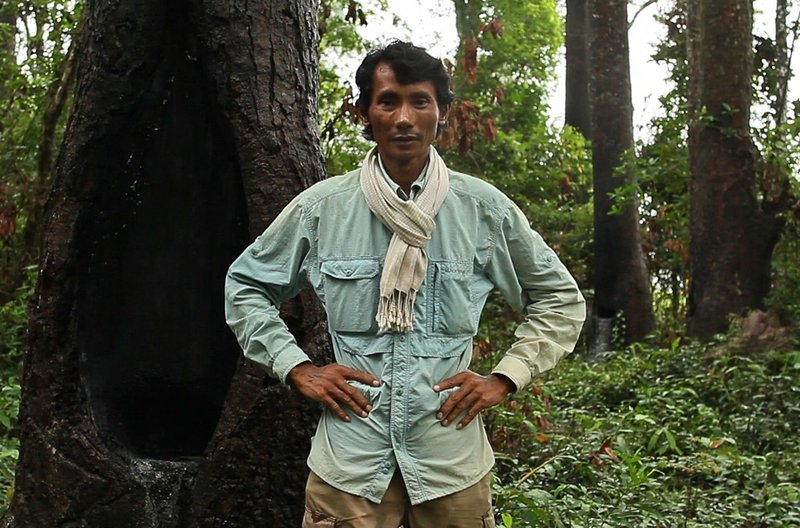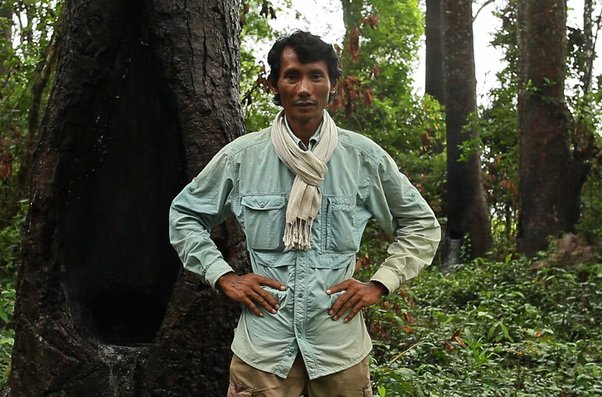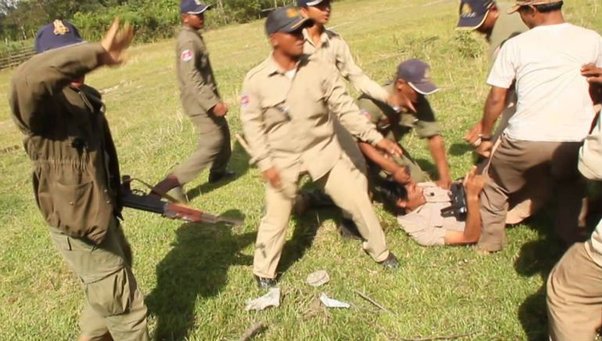It was 5am when I woke to the news that Chut Wutty had been murdered. Colleagues and I were in Washington DC to attend the biggest global meeting on land rights – the World Bank’s annual Land and Poverty Conference.
Wutty, a prominent land and environmental activist in Cambodia, had previously worked for Global Witness. As news trickled in, it became clear that he had been shot dead during an altercation with members of Cambodia’s military police. At the time he had been investigating illegal logging and land seizures with two journalists in the forests near the Thai border.
He was killed on Thursday 26th April 2012, five years ago to the day.

Chut Wutty was one of Cambodia’s most vocal environmental activists. He was killed on 26th April 2012
We were at the conference to present our report called Dealing with Disclosure, which set out how transparency can help to prevent land grabs.
As the head of our land team began to speak to an audience of bureaucrats, academics and policy experts, her voice cracked and the emotion of the day came flooding into the room. The audience, who were now in their fourth day of listening to presentations devoid of any sentiment or passion, shifted uncomfortably in their seats as we explained what had happened.
Of all the many conferences I have attended, this is the moment that will always stand out. It highlighted so perfectly the huge gulf between those employed in offices around the world to work on land policy and those fighting on the front lines to protect our land and forests.
Chut Wutty was one of Cambodia’s most vocal environmental activists. He was one of the few people willing to speak out against the illegal logging and land grabbing which continues to impoverish ordinary Cambodians and destroy the country's rich natural heritage.
Seen as a direct threat by the country’s military, business and political elites who continue to loot the country's natural resources, Wutty’s work left him in constant danger. He was just 45 years old when he was murdered, leaving a wife and three children. The government investigation into his murder was open and shut within three days and those involved were never held to account.
Wutty’s murder resonated not just in Cambodia but globally. It was his killing that first inspired Global Witness to start documenting the killings of activists around the world who defend their land, forests and rivers against state or corporate exploitation. Many other organisations have since taken up the mantle. The UN and some national governments now finally have the issue of environmental defenders on their agenda.
But despite this increased attention, the situation for environmental and land defenders has become even more dangerous. As we revealed last year, 2015 was the deadliest year on record, with 185 killings across 16 countries. This trend appears to have worsened in 2016.
I will never forget that moment at the World Bank five years ago. Because of the emotion we were feeling that day, we were able to show those in the room a glimpse of the violence and anguish that exist at the heart of the battle to protect our planet’s last remaining natural resources.
It’s clear though that governments, business and investors still need to do much, much more to combat this crisis and ensure that land and environmental defenders can carry out their work without fearing for their lives.
We must find ways to keep bringing home the reality of their struggle. We must demand action. Until then, many more environmental defenders like Chut Wutty will continue to die on the frontlines of the battle to protect our planet.
This blog is dedicated to Chut Wutty as a celebration of the bravery he showed during his lifetime and all that he was able to achieve.
Read this page in


